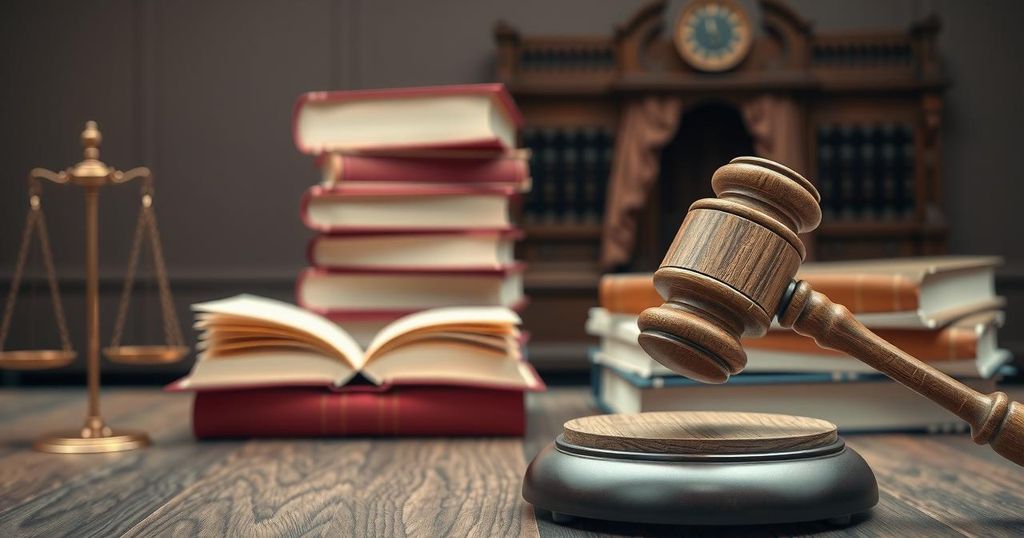Gambian Torture Victims Testify Against Military Officer in Denver Trial
In Denver, former Gambian military officer Pharing Sanyang testified against Michael Sang Correa, alleging torture as part of the Junglers under dictator Yahya Jammeh. Sanyang detailed brutal beating methods and the coercion of a false confession. Correa, indicted under a U.S. law for international torture, faces charges relating to Sanyang and other victims. Others have also testified, with the trial highlighting ongoing calls for accountability following Jammeh’s regime.
In a Denver courtroom on Thursday, former Gambian military officer Pharing Sanyang offered a harrowing account of the torture he suffered almost two decades ago. Sanyang, who was beaten with pipes and even pistol-whipped, testified against Michael Sang Correa, one of the soldiers he claims tortured him while part of a unit known as the Junglers. This unit was directly subordinate to former Gambian dictator Yahya Jammeh.
Sanyang recounted how, during a brutal beating in 2006, sand from the courtyard entered his eyes, leading to severe damage that required multiple surgeries. His testimony was part of a trial that centers around allegations of torture under a unique statute that allows for the prosecution of human rights abuses committed abroad. Correa faces several charges, including conspiracy to commit torture and the torture of Sanyang and four other individuals.
The former military officer described an agonizing ordeal where he was coerced into signing a false confession, blood from his injuries marking the document as proof of his mistreatment. Despite being pressured to confess on television, Sanyang stated he was shocked repeatedly with electrical wires, and the audio recording was made without visuals to hide the abuse. “I had to save my body,” he explained, emphasizing he was not part of the coup he was accused of plotting against Jammeh.
After enduring nearly a decade behind bars for treason, Sanyang finally fled to Senegal upon his release. Meanwhile, Correa reportedly came to the United States to serve as a bodyguard for Jammeh in late 2016, later overstaying his visa. Prosecutors note Correa worked as a day laborer in Denver since then, even though his past continues to haunt him in court.
Other victims, including several who traveled internationally to testify, shared their stories of torture, showcasing photographs of scars inflicted by bayonets and burning cigarettes. The jury was shown the physical evidence of their pain, with one victim, Demba Dem, recounting his own horrific experiences, such as being suffocated with a plastic bag while being beaten. Dem, a former teacher and member of the Gambian parliament under Jammeh’s regime, expressed his dismay over the violence yet felt a sense of responsibility in seeking justice, stating he was “happy” to be in court despite the painful memories.
The ongoing trial has drawn attention as it marks an effort to hold accountable those responsible for human rights abuses in Gambia, echoing a call for prosecution that emerged from a truth commission in Gambia in 2021. Similar trials and convictions have taken place, including a former Gambian interior minister receiving a 20-year sentence in Switzerland for crimes against humanity.
The trial is anticipated to extend into next week, with the testimonies of victims shining a glaring light on the remnants of Jammeh’s brutal regime and sowing hope for justice and recognition for those wronged.
The proceedings in Denver represent a significant chapter in the pursuit of justice for victims of the Gambian regime under Yahya Jammeh. As Pharing Sanyang and others recount their harrowing tales of torture, the case shines a spotlight on the U.S. legal system’s role in addressing international human rights abuses. With continuing testimonies expected, the outcome could set important precedents for handling similar cases in the future.
Original Source: www.denverpost.com




Post Comment